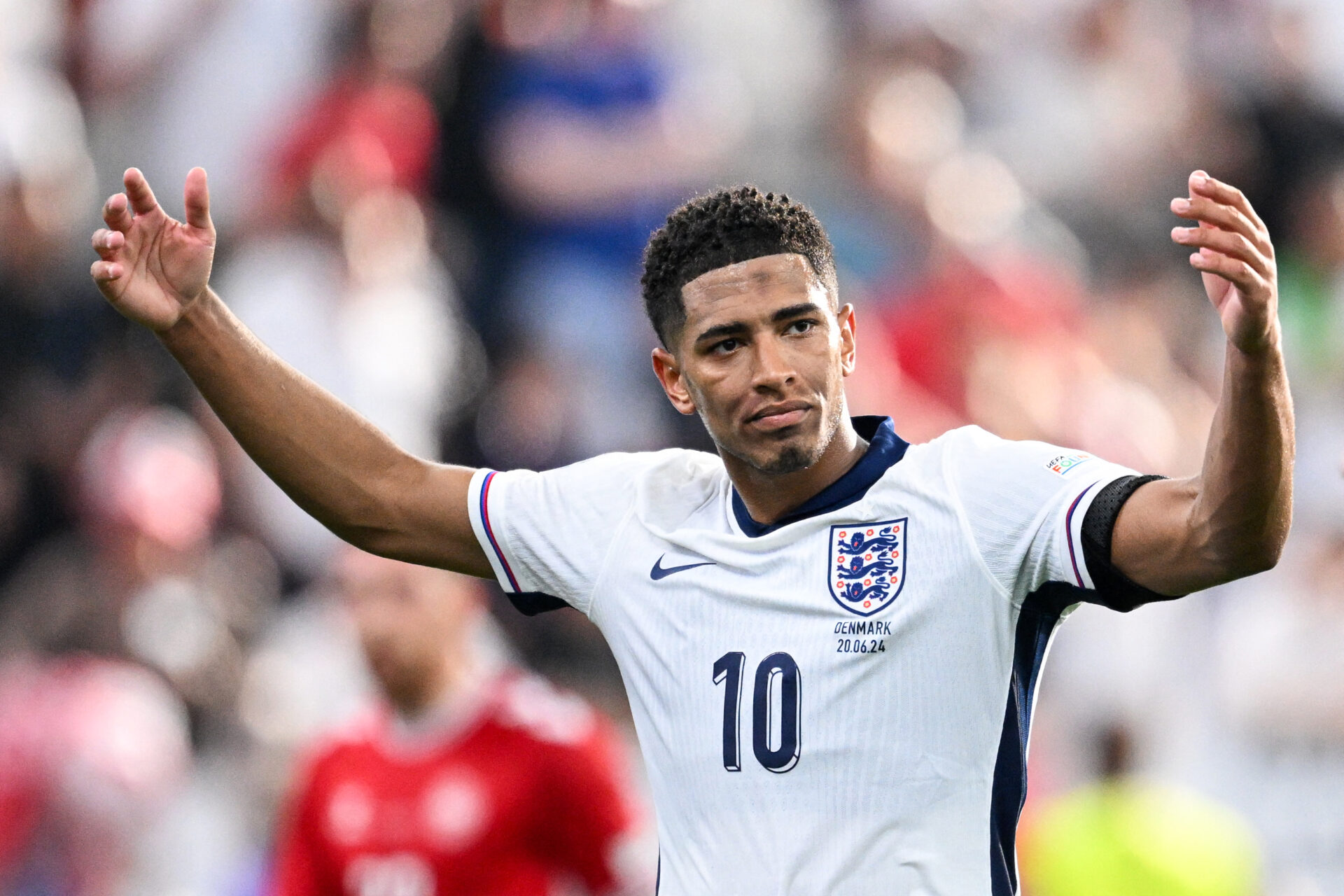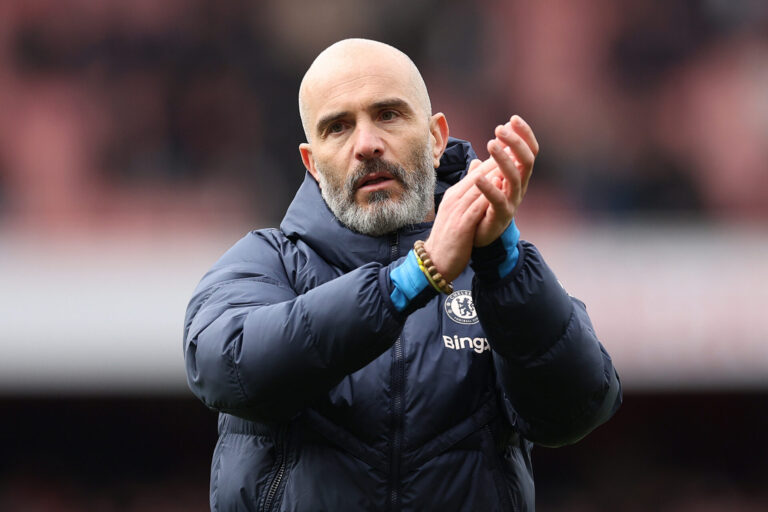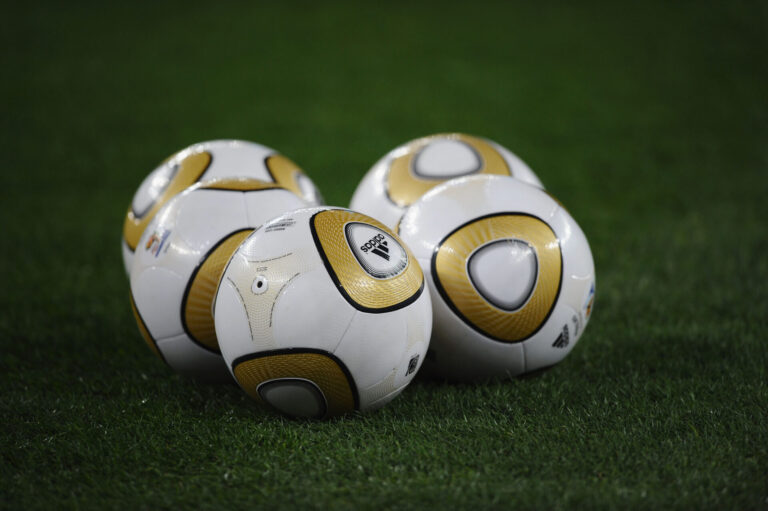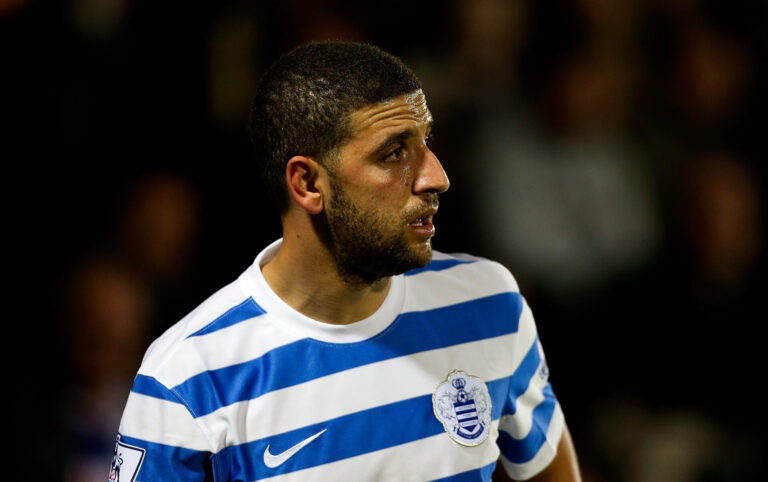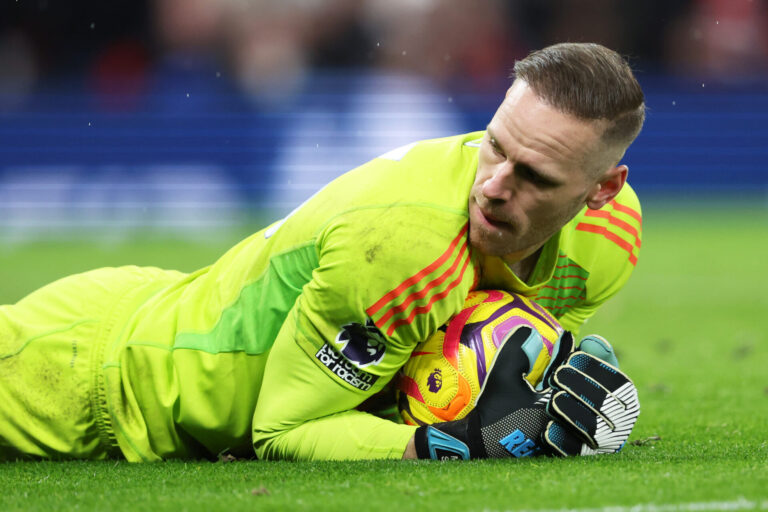England At EURO 2024: A Familiar Dilemma
‘Euro Fever’ is well and truly encapsulating the minds of football fans the continent over. The tournament has already delivered moments of individual brilliance, innovation, and a plethora of own-goal contributions. Although it is still early days, the performances of the so-called ‘lesser’ nations have made fans out of neutral spectators. Whilst anticipation heightens around which contender will be the first to throw down the gauntlet, few, if any, are talking up the prospect of an England victory.
Who can blame them? Despite the pre-tournament hype of possessing this season’s ‘Ballon D’Or winner’ and ‘the best striker in world football’, it’s been a familiar tale. The English press’s overzealous praise for individual performances has put the national team in a Groundhog Day situation. Of course, it would be remiss not to discard the brilliance of Bellingham or the phenomenon of Phil Foden. The transition to the international scene, however, has not been so smooth. In fact, recent performances have largely looked disjointed and fragmented. But this is nothing new, of course. It is England’s perennial problem. Which poses the ultimate question: How do you solve a problem like England?
What Can Southgate Do Differently?
With the exception of Alf Ramsey’s triumph in 1966, Gareth Southgate has been the most successful manager in tournament football for the English national team. That’s a factual statement. Finalist in Euro 2020, World Cup Semi-Finalist in 2018. The 2022 World Cup quarterfinal loss to eventual runners-up France did feel massively underwhelming. Supporters of the manager would tell you that such a sentiment speaks volumes for the way in which Southgate changed how the nation perceived their side. But for Kane’s missed penalty, who knows what could’ve been?
There are, as ever, caveats to this notion. Euro 2020 saw Southgate’s team finish top of their group, but with a meagre two goals scored after facing Croatia, Scotland, and Czechia. They were the first team in the competition’s history to win their group with only two goals scored, in spite of the attacking talent at their disposal. But then the team was quite defensively solid. The 480 minutes of football played before England conceded to Denmark in the semi-finals prove that. The fruits of the 3-4-3/5-2-3 model laid bare for all to see.
As players have developed and football philosophies have altered, Southgate has looked to shift his formations between 4-3-3 and 4-2-3-1. On the face of things, I am a little more ambitious. Both systems were more in vogue with the clubs that his players belonged to, until Guardiola tore up what was conventional. Was this indicative of a more ambitious Southgate?
The evidence is to the contrary. In the final of Euro 2020, Luke Shaw’s early goal saw England sit in and try to play the Italians at their own game. The Italians went on to control large parts of the game and were victorious on penalties. Fast forward to this year’s edition of the tournament. England took an early lead through Jude Bellingham’s header and rode their luck en route to a 1-0 win. The team visibly stood off from their opponents, allowing them more scope for fashioning opportunities to salvage something from the game.
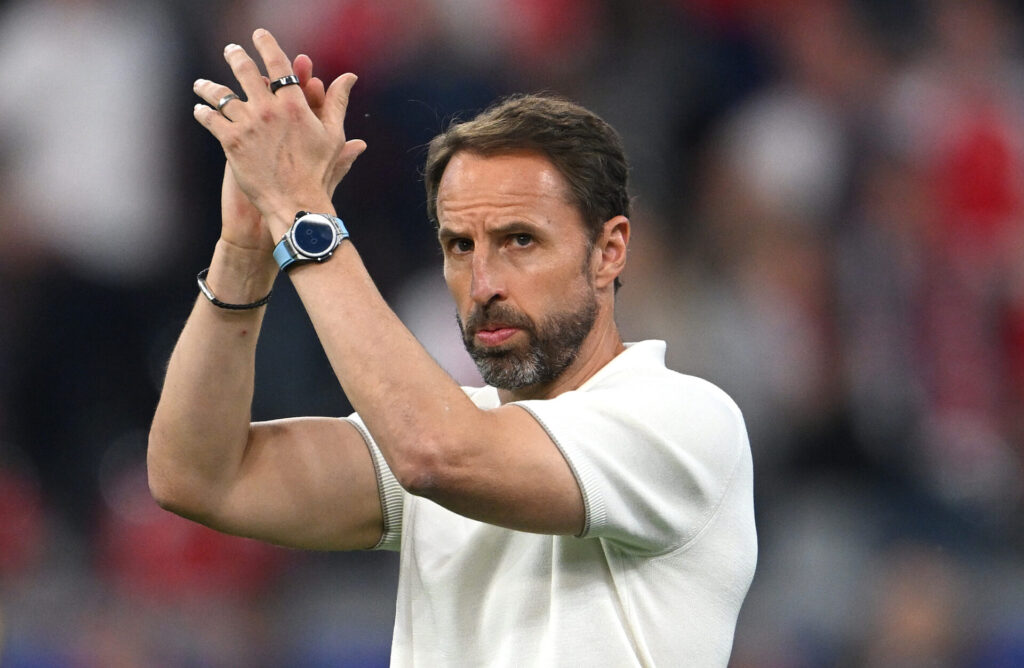
The next match is against Denmark. Déjà vu. Early goal: the team noticeably dropped off. Only this time, a better-quality outfit made them pay and they were arguably the more deserving of the two to go on and take all three points.
Is this a manager directive? Is this a lack of leadership on the field? Is there a collective weakness? With the utmost respect for Serbia and Denmark, a team that many consider to be a potential tournament winner shouldn’t approach either game in this manner. The manager appears to have fallen into the trap of picking his eleven best available individuals rather than the best side to win a game. Foden does not appear at his most comfortable from the left of the attack. He was too wide to influence in phases against Serbia and too narrow for large parts against Denmark.
Bellingham, deployed as a roaming 10, has shown glimmers of his irrefutable quality by dropping deeper and supporting Rice and Alexander-Arnold; however, he has left Kane isolated. The experiment of Alexander-Arnold in midfield has not been quite the disaster some would have you believe, creating three chances vs Denmark. But there are deficiencies in his game. Deficiencies which make him incompatible with play in the midfield pivot. His tackling and defensive awareness just don’t appear to be at the level needed to play centrally and against the better teams, he will undoubtedly be targeted.
England Squad Selection Issues?
When the squad was announced at the beginning of June, there were some noticeable omissions from the squad that set tongues wagging feverishly. Given that Southgate has earned a reputation as someone who has shown loyalty to players he has called up previously, he made some bold squad selections. Marc Guéhi, Ezri Konsa, Anthony Gordon, Cole Palmer, Kobbie Mainoo and Adam Wharton have all had impressive seasons with their clubs, but have less than 30 caps between them. It’s certainly a calculated risk, but one that may pay off.
If selecting from a fully fit squad, John Stones is arguably England’s best centre half. Luke Shaw is the best left back. Yet, despite both missing large parts of the season for their clubs, both found themselves on the plane to Germany. Kieran Trippier, another player who has spent significant time on the sidelines, is trying his best on the left side of the back four but has been predictable and ineffective in the build-up phases.
With such precautions being taken over Shaw’s involvement in training, it raises questions around his call-up. Why not select a more natural left back? Harry Maguire has proven himself to be dependable for England and provides a nice foil for Stones, but his absence was a logical decision. It is, however, a huge miss for an England backline that used to practically pick itself.
And then there is the attacking trio of Maddison, Grealish and Rashford. Each player has had their ups and downs at club level this season, but all have a certain X-Factor about them that can change a team’s fortunes. Southgate has clearly gone all-in on having as many in-form players available to him as possible. Should England progress in this tournament, however, the lack of ‘big game’ experience off the bench could prove detrimental. Some critics would argue, however, that even with the absence of these three, England should have more than enough quality and depth. They should be getting through this group at a canter.
Maximising Team Performance
There is a real mix of youth and experience throughout Southgate’s squad; six of the starting XI had more than 45 caps. Three of the others in the XI were aged 23 or under, though Saka and Bellingham have already experienced so much in their relatively short careers. That experience and form, however, were absent for the vast majority in the opening games.
Take Harry Kane as an example. Whilst Bayern Munich endured their first trophyless season in 12 years, their frontman notched up 44 goals in 45 matches. He came into the tournament with 12 goal involvements in his last 8 matches.
Then you look at his first two performances at the Euros. In the first half, he was conspicuous by his absence; he touched the ball only twice and had very limited impact in England’s on-the-ball build up. In the second half, as the team came deeper, so too did Kane, at times behind both the wide men, the attacking midfielder and the marauding Bellingham. While his creativity on the ball can certainly be an asset, it is arguably working against England’s fluidity.
There may be times when he is needed to drop in and offer opportunities for quicker forwards to break the line, but it isn’t always necessary. He does not have the same profile as Erling Harland, but he could glean something from his work in the City setup. It’s a small sample size, but Kane playing as a focal point rather than a creator is when England looked their most authoritative thus far.
Former Ireland international James McLean has been quite vocal with his assessment of Declan Rice’s abilities compared with other household names. While the debate rages on over whether he is deserving of his ‘world class’ label, it is patently obvious that Rice is England’s best deep-lying midfielder. He reads the game to an exceptional standard, and, at times, can make playing in such a pivotal position look effortless—a fluid passer of the ball. He is an exceptional athlete. But for all the good attributes he possesses, however, this tournament has made a couple of things quite clear.
Firstly, Rice is not Rodri and never will be. It is a simplistic comparison, but Rodri’s role in the Spain team is not poles apart from his role at club level. Their systems are different, but Rodri occupies the space around the centre circle with purpose. He keeps the tempo ticking over and will occasionally break forward when the right situation presents itself. He does all of this impeccably.
That’s not to say Rice doesn’t exhibit some of these same qualities, it’s just that Rodri does it better—he reads the game at a truly elite level. Is Rice at that same level in that same position? No, but who is? Which leads to the second point: when does Rice play as the sole anchor for Arsenal?
Arteta rarely, if ever, deploys one midfielder in a half-back/anchor capacity and partners Rice with someone like Thomas Partey or Jorginho, depending on the opposition. So why would anyone ask him to take sole responsibility in this England team and implement such a risk with the stakes so high? A 4-3-3 is, therefore, out of the question. You could set up in the reliable 4-2-3-1, but without the square peg of Trent Alexander-Arnold occupying a round hole.
There are various alternatives Southgate could opt for to navigate this, but each option presents a risk. If he is intent on backing his stars to perform, then switching Bellingham into the pivot alongside Rice and moving Foden more centrally seems to make the most sense. Others who haven’t yet had a chance to represent England could fill the left wing position, particularly Anthony Gordon, who has a frightening turn of speed and an eye for goal.
His inclusion would definitely add a different dimension going forward, and he has shown a willingness to track back and help defend against the transition. As he has shown he is risk-averse, Southgate may also opt to simply swap Alexander-Arnold for another midfielder, possibly Conor Gallagher. Alternatively, Kobbie Mainoo or Adam Wharton could be considered and both would bring a certain calmness and poise to the middle of the park. They are in the squad on merit and should certainly be at the forefront of the manager’s mind if he looks to make a switch.
The Solution
Southgate has received plaudits for creating a more cohesive squad and reducing cliques amongst the national team. He must now prioritise getting the best out of those same players on the pitch. He doesn’t need to go back to the drawing board with the team’s shape, but must consider how to get the most out of his squad. If England are to have any success, Kane will be an influence. It all depends on how he is utilised moving forward.
Team balance and fluidity are ultimately what should guide Southgate’s selections. By making just one or two subtle changes to his line-up, he might just see the squad’s potential fulfilled.


